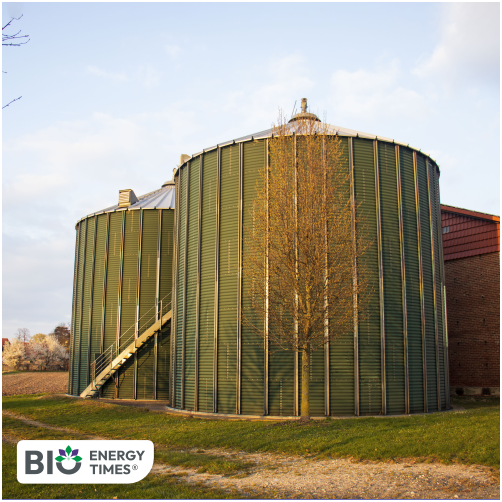Kanadevia Inova, a global leader in energy transition and circular economy solutions, has successfully acquired the Wardley Biogas and Lower Drayton biogas plants in the UK, according to the press release.
The strategic acquisition strengthens Kanadevia Inova’s presence in the country’s anaerobic digestion (AD) and renewable energy sectors, boosting its ability to supply clean, locally produced biomethane to the national gas grid. With this addition, the company now operates 17 biogas facilities across key target markets in the UK.
“Expanding Kanadevia Inova’s biogas capacities is central to our mission of creating a future free from wasted resources,” said Nick Ross, CEO of Kanadevia Inova Capital. “These new facilities help us grow our portfolio while supporting sustainable agriculture and delivering clean energy to thousands of homes and businesses nationwide.”
Both the Wardley and Lower Drayton plants are operational, gas-to-grid anaerobic digestion facilities accredited under the UK Government’s Renewable Heat Incentive (RHI) scheme. The acquisition marks a significant step in Kanadevia Inova’s long-term strategy to invest in circular economy assets and low-carbon infrastructure.
Located in Gateshead, Tyne and Wear, the Wardley Biogas plant focuses on processing food waste. The facility can handle up to 80,000 tonnes of food waste annually, converting it into biomethane for the gas grid while producing nutrient-rich digestate for agricultural use. This process helps divert organic waste from landfills and reduces greenhouse gas emissions.
The Lower Drayton Biogas plant in Staffordshire processes agricultural residues, including manure and crop waste. The facility supports sustainable farming practices in the region by promoting closed-loop resource management and generating renewable energy, contributing to the decarbonisation of the agricultural sector.
Both facilities are connected to the UK gas grid and are already injecting biomethane, supporting national renewable energy targets and energy security. Their RHI accreditation ensures long-term support for low-carbon heat output and revenue stability to underpin future growth.















